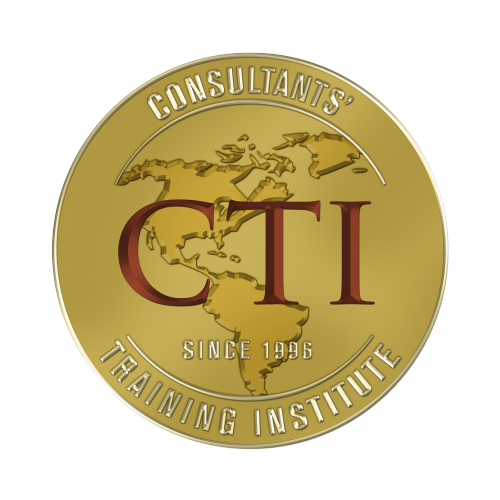 |
Consultants' Training Institute Webinar Details |
 |
Consultants' Training Institute Webinar Details |
Legal Considerations for ESOPs
Wednesday, August 3, 2016
10:00 a.m. Mountain time (MT)
Program Description
The aging of the baby boom generation has resulted in a large and increasing number of business owners considering ownership succession and liquidity alternatives. While many business owners will pursue traditional strategies such as a sale to a third-party, a management buyout, or leveraged recapitalization, for some business owners a sale to an employee stock ownership plan (ESOP) will be an attractive alternative. ESOPs impose a legal requirement that the subject company's stock be valued as of the date of the transaction and annually thereafter. In this five-part webinar series, you will learn ESOP basics, valuation, legal, accounting, and finance considerations from a group of the top ESOP professionals in the United States, concluding with a discussion of case studies.
This webinar discusses the legal issues that arise during an ESOP transaction, as well as other post-transaction considerations.
Learning Objectives
After completing this webinar, attendees will be able to:
Who Should Attend
CEOs, CFOs, CPAs, attorneys, financial advisors/planners, and commercial lenders
Presenter(s)
Erin Turley, LL.M.
Ms. Erin Turley is a partner in the law firm of McDermott Will & Emery LLP and is based in the Firm’s Dallas office. She focuses her practice on employee benefits matters.
Ms. Turley has extensive experience handling matters pertaining to the Employee Retirement Income Security Act of 1974 (ERISA) and employee stock ownership plans (ESOPs). With respect to ERISA, Ms. Turley focuses on employee benefits, including qualified plans, nonqualified plans, and executive and deferred compensation, and welfare benefit plans; and on regulatory compliance with the Internal Revenue Code, ERISA, COBRA, HIPAA, and PPACA. She also advises employers in the design, implementation, and administration of tax-qualified and nonqualified retirement plans and health and welfare benefit plans and regularly represents clients before the Internal Revenue Service and the Department of Labor in audit and correction matters. Ms. Turley has advised employers with respect to issues raised in connection with corporate mergers, acquisitions, and divestitures as they relate to the various benefit plans maintained by the affected corporate entity or entities.
Ms. Turley’s ESOP practice focuses on the design and implementation of ESOP transactions and providing ongoing legal counsel to ESOP owned companies. She has been involved in hundreds of ESOP transactions including leveraged buy-outs, mergers, acquisitions, and the structuring and financing of ESOPs using private equity. Ms. Turley also has extensive experience in representing lenders to ESOP owned companies in designing and negotiating credit facilities specifically tailored to the needs of ESOP owned companies.
Ms. Turley has been recognized by The Best Lawyers in America and by D Magazine as a leading lawyer in her field. Additionally, she is an active writer and speaker on ERISA and ESOP issues.
Ms. Turley received her LL.M. in 1996 from Georgetown University Law Center. She earned her J.D. in 1994 from Texas Tech University School of Law and her B.A. in 1989 from University of Dallas.
David Solomon, JD
Mr. David Solomon is a partner in the Corporate & Securities Group. Mr. Solomon has extensive experience in structuring and
consummating mergers and acquisition transactions and in representing banks, mezzanine lenders and private equity
firms when they make investments in companies. Mr. Solomon adds value as a transactional lawyer through organization and collaboration with other members of a deal team to
get the deal done efficiently. Instead of simply raising legal issues without considering a client’s business objectives, he
focuses on being a problem-solver by proposing creative solutions to issues that allow deals to move forward. He also
regularly spends time reviewing market data and networking with other service providers, critical to be able to help his
clients assess whether they are getting a good deal.
Mr. Solomon also represents many middle-market companies in a "general counsel" capacity by handling various business law issues. He spends time developing personal relationships with each of his clients, knowing the insight gained from those conversations is crucial to serving as a better advisor to the company. Mr. Solomon works to show his clients that when they need a legal resource, they can rely on his advice and judgment because he has taken the time to meet with the owners and executives of the company to understand their business and their appetite for risk. Upon joining Levenfeld Pearlstein in 2009, Mr. Solomon founded and currently serves as the chair of the firm’s employee stock ownership plan (ESOP) practice, which serves clients who are involved in various types of transactions involving ESOPs. In addition to working on ESOP transactions and advising ESOP companies, Mr. Solomon currently serves as the executive vice president of the Illinois Chapter of the ESOP Association and is also on the board of directors of the National Center For Employee Ownership (NCEO). David has lectured frequently on ESOPs and has published articles in various publications about how ESOPs are an effective business succession strategy.
CPE Credit
| Program Level: Overview | Prerequisites: None | Advanced Preparation: None |
| Delivery Method: Group Internet-Based | CPE Credits: One (1) Hour | Fields of Study: Specialized Knowledge & Applications |